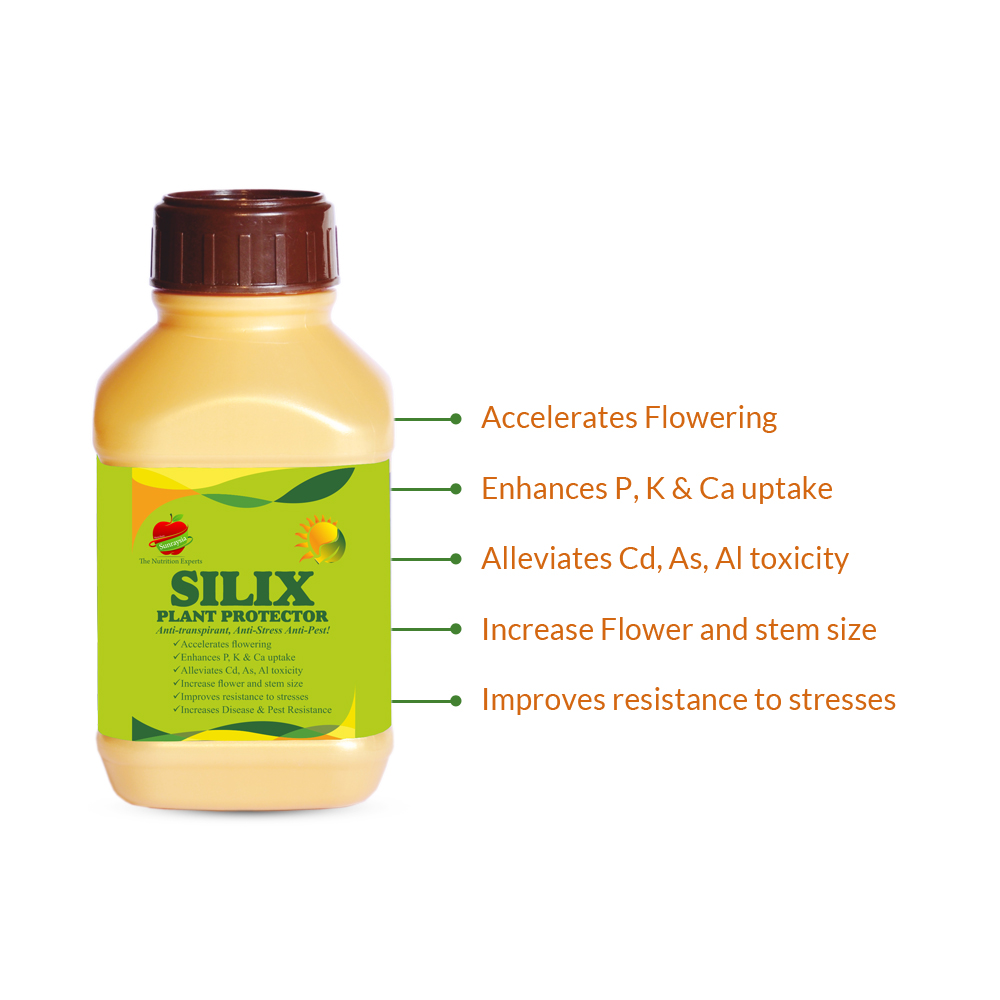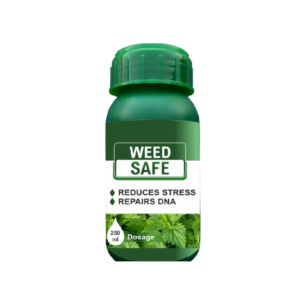
SILIX
Silicon is now officially designated as a plant beneficial substance by the Association of American Plant Food Control Officials (AAPFCO). Silicon is known to affect plant growth, quality, photosynthesis, transpiration and enhance plant resistance to stresses such as drought. Plant assimilates silicon through roots as silicic acid. Inside plant, it travels to active growing points, where it complexes with an organic compound in the cell walls and make them stronger. Silicon enhances growth and yield of all annual and vegetable crops, promotes upright growth, prevents lodging, promotes favorable exposure of leaves to light, provides resistance to bacterial and fungal diseases and decrease some abiotic stress as temperatures, salinity, heavy metal and aluminium toxicity. Silicon has positive effect on the biomass yield under deficit irrigation. Plants subjected to draught, treated with silicon, maintained higher stomatal conductivity, relative water content and water potential. It helps leaves become larger and thicker, thus limiting the loss of water through transpiration and reduces water consumption.



